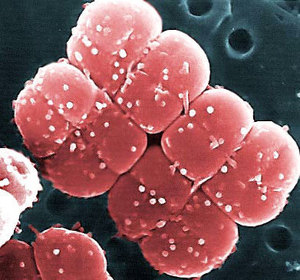Deinove, Arbiom announce collaboration

Deinove
March 15, 2016
BY Deinove
Deinove, a biotech company developing innovative processes for producing biofuels and biobased chemicals by using Deinococcus bacteria, and Arbiom, a biotechnology company dedicated to the development of a biorefinery process from nonfood biomass, recently announced the start of a collaboration. Both companies decided to combine their respective technologies to provide a complete value proposition integrating different links in the biorefinery1value chain.
Combining technologies of excellence
By combining their technologies, both emerging from French biotechnology research, the companies aim to develop more efficient integrated industrial processes in terms of performance and production costs.
Arbiom develops biorefinery units for the conversion of nonfood biomass into fermentable sugars and lignin. The company has developed a patented process for the pretreatment and hydrolysis of plant biomass, with a particular focus on lignin-rich forest residues. It aims to provide ready-made recycling solutions to industries producing plant waste (sawmills, furniture, construction, pulp and paper industries, etc.).
Advertisement
Advertisement
Deinove develops biomass hydrolysis and fermentation methods for the production of compounds of interest used in plastics, food, feed, cosmetics, etc.
Initial evaluation phase
The initial phase of the collaboration involves the characterization of the Arbiom biomass (forestry residues pretreated with phosphoric acid and hydrolyzed) and the evaluation of Deinococcus potential for assimilating the sugars extracted from this biomass.
Advertisement
Advertisement
Prior to the conclusion of the collaboration agreement with Arbiom, the Deinove teams conducted assimilation tests in the laboratory, which show promising results. On this basis, further tests will be conducted to define the molecules that can be produced by fermentation.
The work could continue in the Arbiom pilot unit in Norton, Virginia.
"Our goal is to contribute to the development of a responsible bioeconomy. This collaboration with Deinove broadens the range of applications of our bio-refineries and the solutions we offer to industry," said Gilles Amsallem, CEO of Arbiom.
"This collaboration agreement with Arbiom constitutes a new market potential for our technology. We are pleased that our technology also works on wood, opening the way to multiple applications for the valorization of wood residues," said Emmanuel Petiot, CEO of Deinove.
Related Stories
The European Commission on July 18 announced its investigation into biodiesel imports from China is now complete and did not confirm the existence of fraud. The commission will take action, however, to address some systemic weaknesses it identified.
Kintetsu World Express Inc. has signed an additional agreement with Hong Kong, China-based Cathay Pacific Airways for the use of sustainable aviation fuel (SAF). The agreement expands a three-year partnership between the two companies.
Broco Energy on July 17 announced a new partnership with the Massachusetts Port Authority (Massport) to deliver and transition Massport's fuel tanks to renewable diesel across its various facilities.
Shell Aviation, Accenture, and Amex GBT on July 10 announced Avelia is in the process of evolving to an industry solution with independent data hosting and a multi-supplier model helping users access the GHG benefits of SAF.
The U.S EPA on July 17 released data showing more than 1.9 billion RINs were generated under the RFS during June, down 11% when compared to the same month of last year. Total RIN generation for the first half of 2025 reached 11.17 billion.
Upcoming Events










